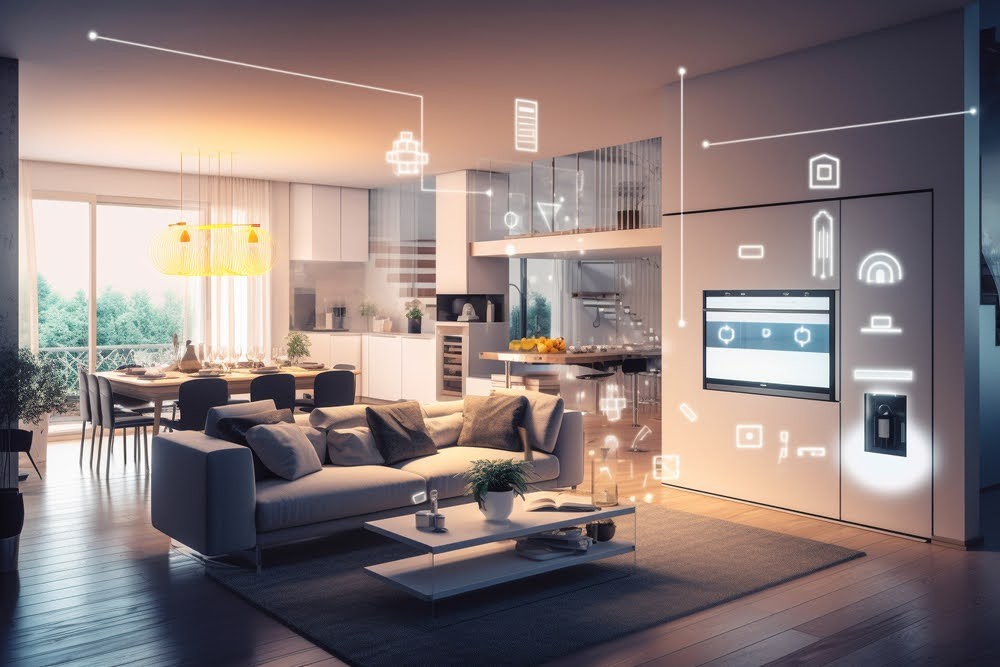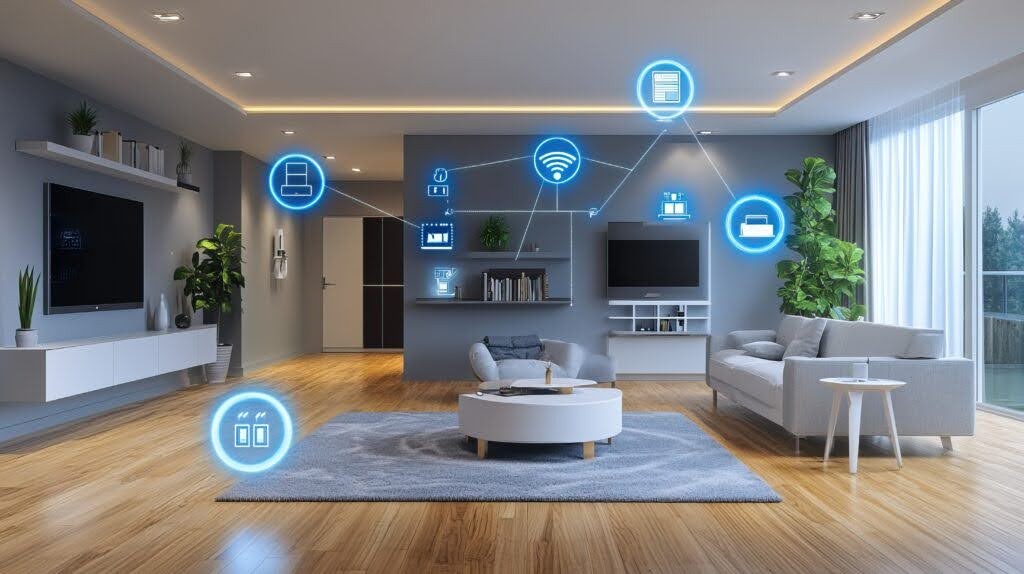Every year, people are developing and using technology more and more. The year 2025 is no exception, and the concept of a smart home has become one of the main trends. Rapidly evolving technology, combined with rising user expectations for a seamless experience, is changing the way we live, work and interact with our environment.
So the digital advantage of a smart home automation systems is not just about flashy gadgets, but also about creating a comfortable, efficient and secure environment that best suits your lifestyle. More and more people are embracing the concept of a smart home, using a bunch of devices and improving their quality of life.
The Digital Home Is No Longer Optional
Let’s start our story with what a digital home is. In a simple sense, it is a living environment with enhanced comfort achieved by incorporating technology. Smart thermostats, voice assistants and automated lighting are becoming as commonplace as electricity and running water. With the average home having around a dozen connected devices, digital integration is becoming a convenient solution for efficiency and organisation.
The increasing popularity of remote work and learning has also changed expectations. People who work from home want to surround themselves with a comfortable and modern environment, to feel at home and in the office at the same time. High-speed connectivity, secure networks and intelligent workspace management are all in demand. In addition to tech enthusiasts, ordinary families and students are upgrading their homes and implementing smart systems to simplify daily routines and increase productivity.
Homeowners also benefit from energy optimization and cost savings. Smart meters and AI-based climate control systems adjust energy usage based on occupancy and external conditions, reducing monthly bills. The upfront investment pays off quickly, both financially and environmentally.
Security and Connectivity: Protecting the Digital Frontier
Security along with comfort remains a top priority. With the increasing number of smart devices connected to the Internet, certain risks are growing. A modern digital home must have a strong cybersecurity foundation, including the latest firewalls, updated firmware and encrypted connections. Devices such as smart doorbells, surveillance systems, and biometric locks increase physical security along with comfort. However, safety precautions should not be overlooked to ensure that all devices are in good working order and safe to use for both adults and children.
The growth of online activity, especially in the areas of entertainment, gaming and finance, has also been made possible by improvements in technology. Home Internet networks have improved significantly and can now support state-of-the-art streaming, gaming, conferencing and cloud backup without lag or interruption. People can now browse cs2 betting tips and other diverse platforms quickly and comfortably. This, in turn, has increased the number of online users and has led to the development of the entertainment and esports industry.
In terms of professional activities, esports players rely on uninterrupted access to games and statistics in real time. This provides them with comfortable training. It doesn’t require the whole house to be equipped with high-tech technology, as a computer and fast internet are enough.
Lifestyle Automation: Saving Time, Energy, and Sanity
Continuing the topic, it is worth mentioning automation. Home automation is one of the main modern trends when it comes to technology. In 2025, it is about creating adaptive ecosystems that understand your habits. AI-powered routines can manage simple household tasks, such as brewing coffee or turning on the shower.
Voice-controlled centres are no longer a luxury, and the average family can easily afford them. They integrate into the home environment and can control heating, ventilation and air conditioning systems, refrigerators, washing machines, entertainment centres and even lawn irrigation. You’ll agree that this set of functions is impressive and can save you a lot of time. This centralised control will help you manage your home more easily.
Automation also helps those with limited mobility or specific accessibility needs. Smart homes can significantly improve quality of life by enabling independence through remote controls, personalized environments, and real-time assistance.
But more importantly, automation lets you focus on what matters. Instead of juggling dozens of small tasks, your home becomes a partner, taking care of routine operations without constant supervision.
Sustainability and Smart Living
With the development of technology, environmental issues have become quite urgent for humanity. The way we build and manage buildings has been rethought. In 2025, digital tools will play an important role in creating a sustainable living environment that is not harmful to nature. Smart energy management systems can reduce household energy consumption by up to 30% by monitoring usage patterns and adjusting power output in real time.
Solar panels are also quite popular and can replace part of the electricity supply to a home. Rainwater harvesting sensors and real-time air quality monitors are also being used. With these tools, people can better monitor the digital home ecosystem. These systems allow homeowners to make informed decisions about energy consumption and environmental impact.
Smart appliances are also far more energy-efficient than their predecessors. They learn from user habits, optimize their operations accordingly, and alert you when maintenance is needed – all of which contributes to longer product life and reduced waste.
In the long term, these technologies aren’t just about reducing utility bills. They’re about building resilience in a world where energy costs fluctuate and environmental responsibility becomes a social obligation.
Conclusion
Putting all the facts together, we can say that technology can improve people’s lives if used correctly, as the concept of a smart home proves. In 2025, the digital home is no longer a trend, but the basis of modern life. In this article, you have learned about automation, smart infrastructure, and smart systems, all of which can increase the comfort of your home and improve your efficiency. Investing in the digital development of your home means ensuring development, increasing long-term value and, most importantly, increasing comfort.


